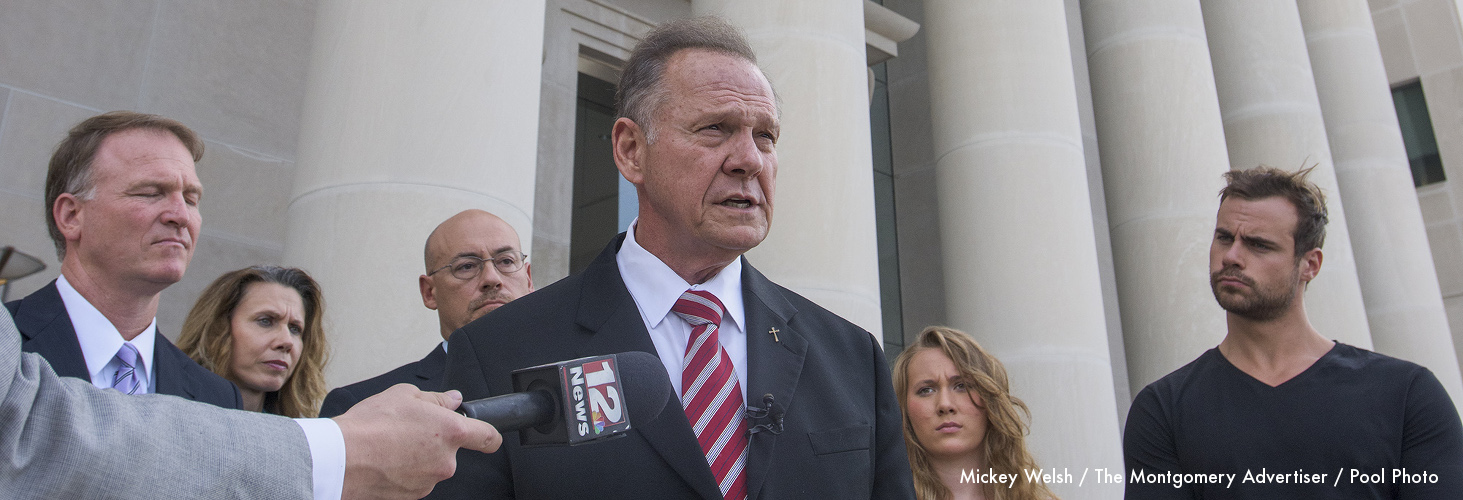By Brandon Moseley
Alabama Political Reporter
Friday, the Judge Roy Moore for U.S. Senate Campaign called on the Washington Post (WAPO) to issue a correction regarding its recent reporting on Moore, which Campaign Chairman Bill Armistead called inaccurate.
Chairman Armistead said in a statement,“The Washington Post recently published a number of hit pieces on Judge Moore and how he was compensated by the Foundation for Moral Law for work performed on their behalf. The stories have contained misrepresentations and inconsistencies designed, not to tell the truth, but to hurt Judge Moore politically.”
“Consider: in an October 11th story, The [Washington] Post claimed that Judge Moore earned more than $1 million from the Foundation for Moral Law from 2007-2012,” Armistead said. “Yet in a story today, the Post contradicted itself and admitted the Judge earned far less than what The [Washington] Post originally reported.”
“In today’s story, The [Washington] Post alleges that Judge Moore failed to pay taxes on a promissory note he was issued as an IOU by the Foundation, but the law requires no one to pay taxes on income not yet received,” Armistead stated.
“Jimmy Williamson, a CPA, former IRS agent, and past Chairman of the American Institute of Certified Public Accountants further confirmed this: ‘Mortgages and promissory notes for payment are not designated as income received until those moneys are paid. According to IRS Publication No. 17, individuals report income only when received.,’” Armistead added. “Judge Moore is an honorable man who has served the public according to the highest of ethical standards and in accordance with the law. The Washington Post should retract its story immediately and fire the reporters who cooked up this latest batch of fake news.”
Washington Post reporters Robert O’Harrow and Shawn Boburg reported on Friday that they have talked with five tax advisors who told them that the guaranteed payment should have been reported as compensation, a disclosure that would have triggered a federal tax bill of more than $100,000. The promissory agreement was for $498,000.
It is the Alabama Political Reporter’s understanding of the situation that when the Foundation for Moral Law was struggling to pay its bills due to a judgement made against it; that Moore cut his own compensation and took a deferred compensation agreement that he would be paid at some point in the future when the Foundation’s finances improved. The campaign is arguing that Moore would have not needed to report the income until, if and when, he actually received the future income.
This is not the first time that the Moore campaign has been critical of a WAPO article on the Moore’s finances. WAPO previously reported on the deferred compensation agreement and the moneys paid to Moore as president of the Foundation for Moral Law. Moore created the charity after he was removed as the elected chief justice of the Alabama Supreme Court in 2003 for placing a monument of the Ten Commandments in the Alabama Supreme Court building.
Recent polling of likely voters by Raycom and Birmingham’s WBRC Fox 6 shows Judge Moore easily besting former U.S. Attorney and Democratic candidate Doug Jones 51 to 40 percent.
The special general election is on December 12.






















































